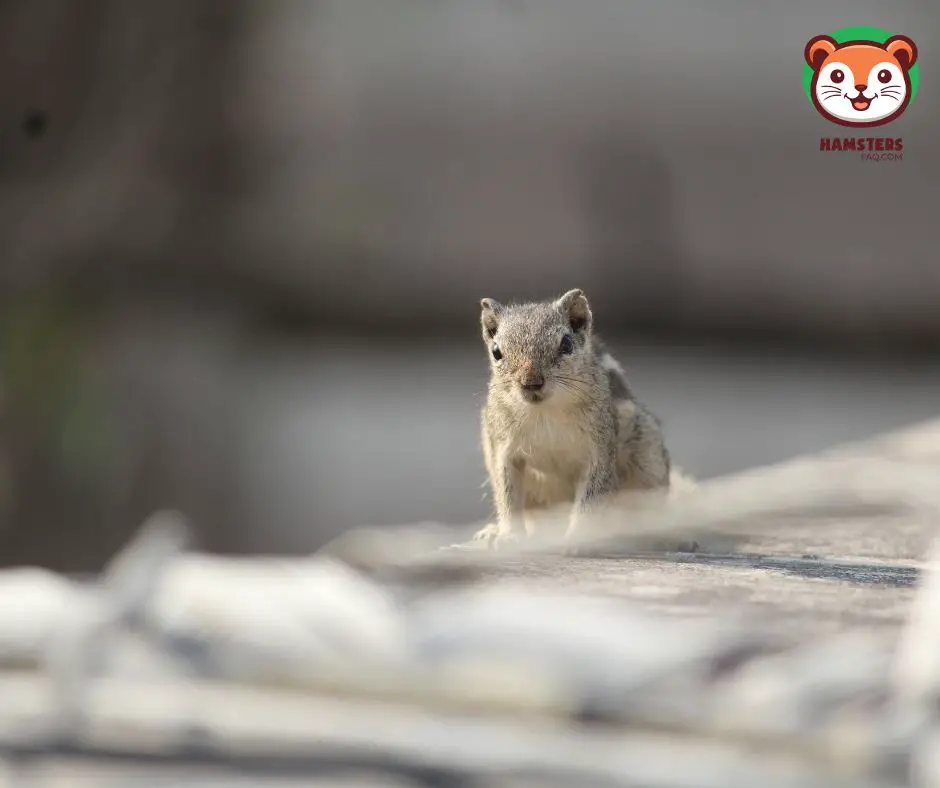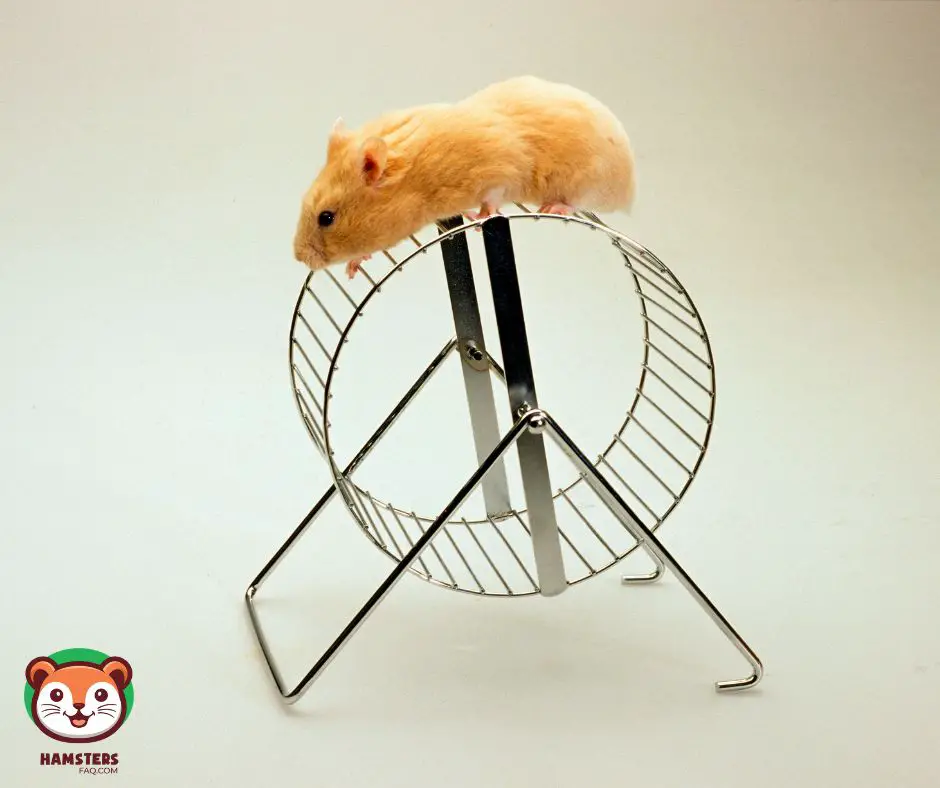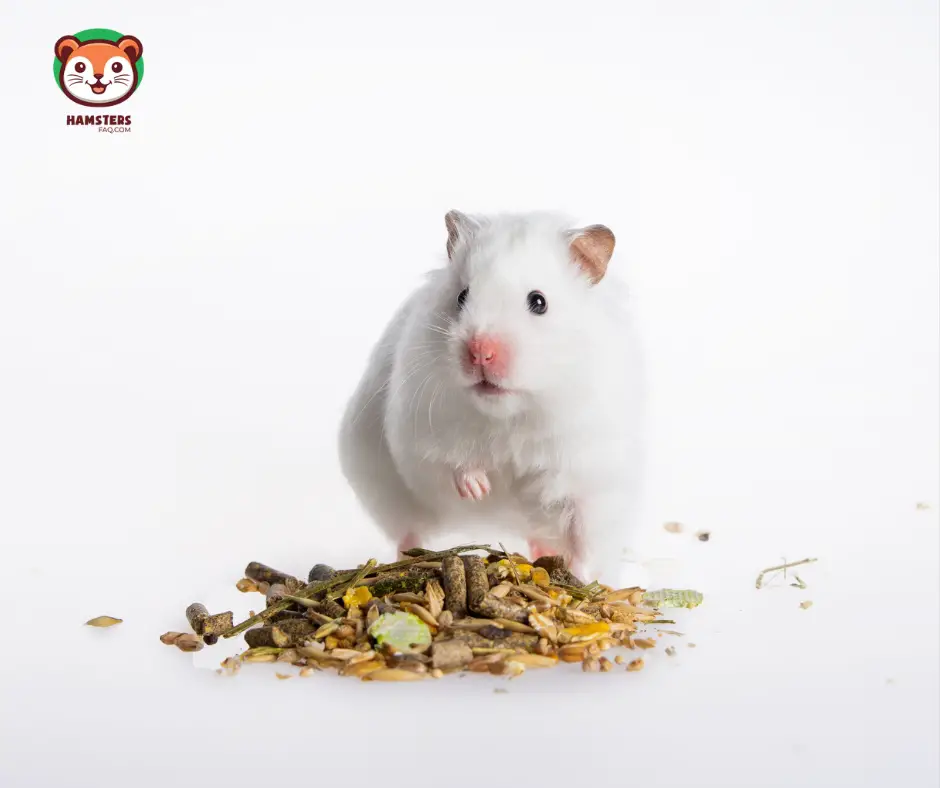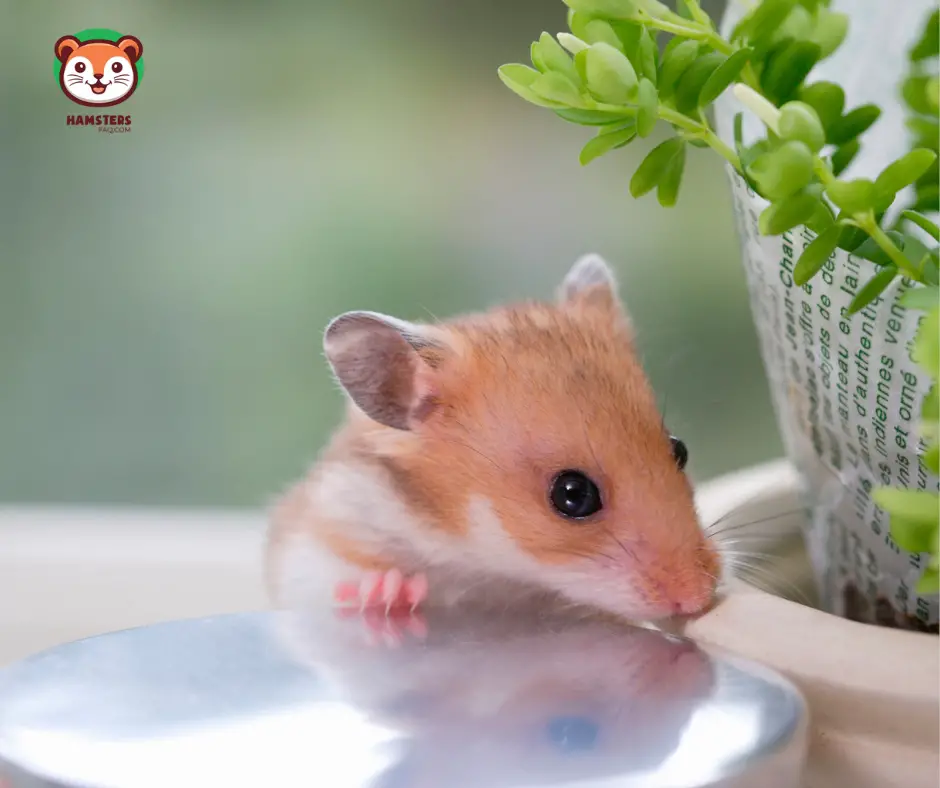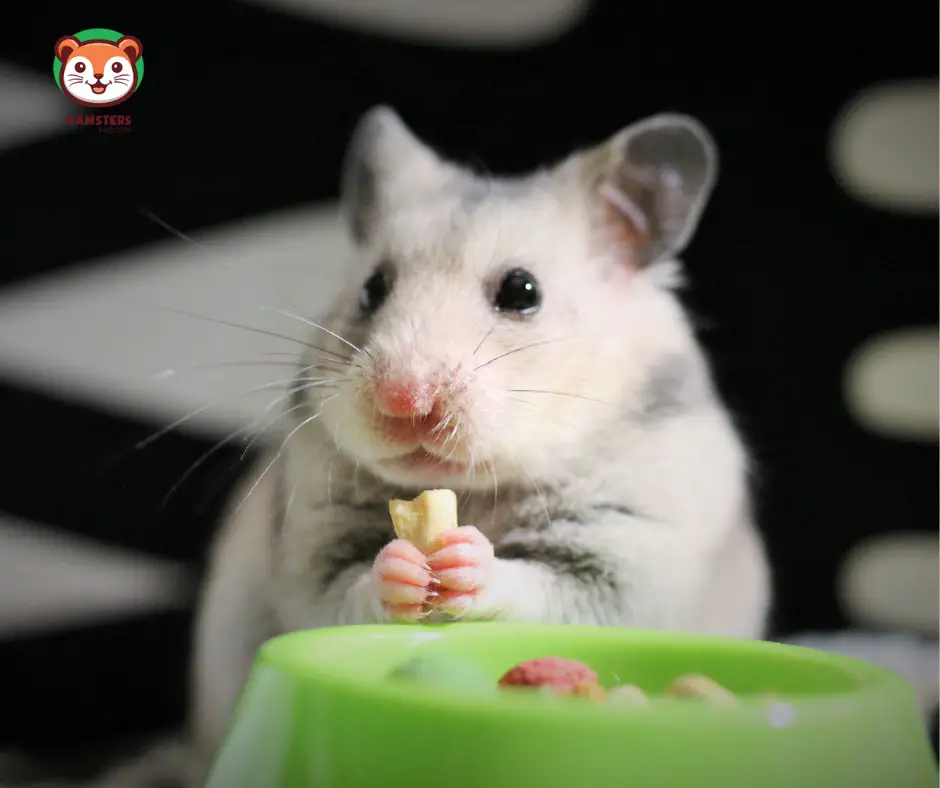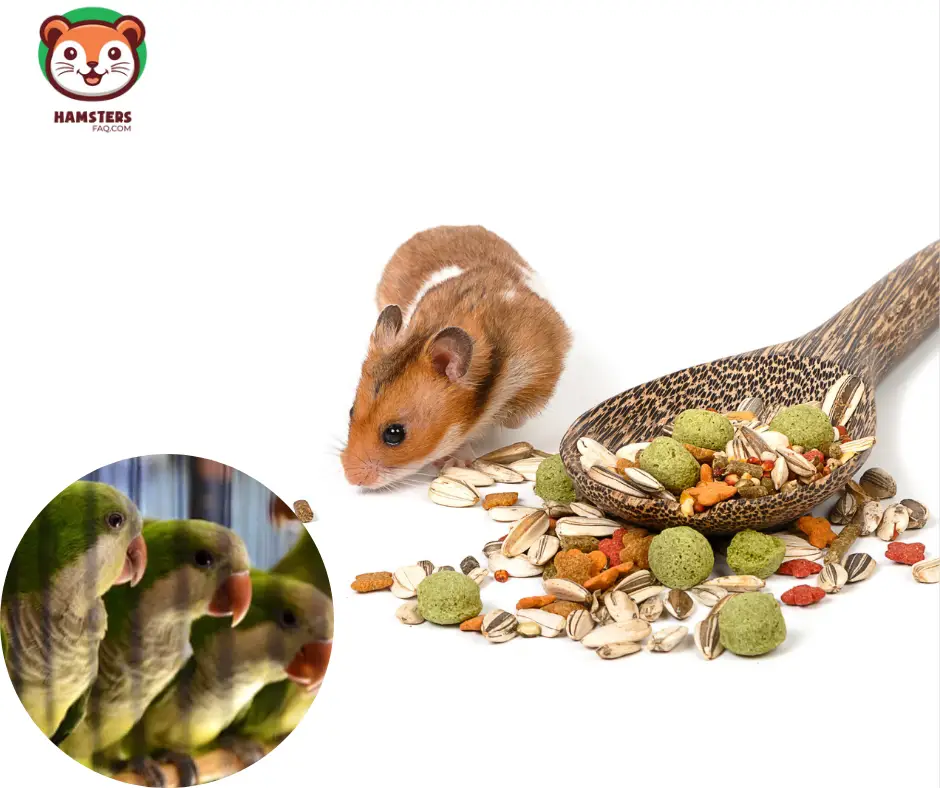If you have a squirrel that needs to be fed, it’s important to know what they eat. Squirrels are generally omnivorous and can get their nutrients from plant and animal sources.
You’ll need to ensure that the food they eat is either fresh or kept in a way that prevents the other pets in your house from getting to it, as it may contain harmful things to their health. But can baby squirrels eat mice or hamster food?
Yes, but only as a last resort and in the smallest amounts. The problem with feeding baby squirrels mouse or hamster food is that they cannot digest it properly. As a result, they will become dehydrated and eventually die from malnutrition.
However, you can feed them baby formula if you have experience in doing so, but this is not recommended because it can cause long-term health problems.
If you cannot find a bottle for them to drink from and need to give them something to eat, then you should use a mixture of mashed-up soft fruits and vegetables, such as applesauce and spinach, and water.
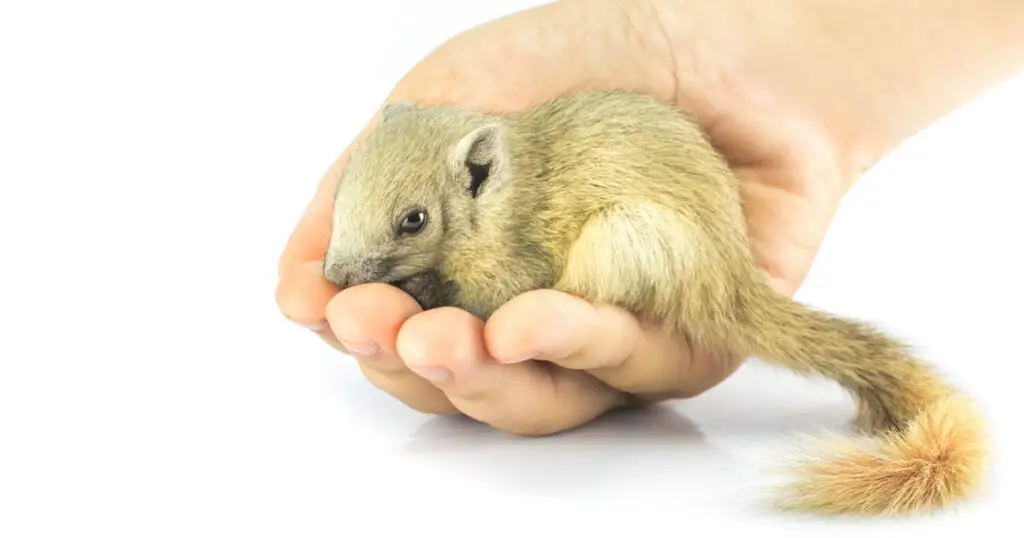
Table of Contents
What to Feed Pet Baby Squirrels?
You can feed your pet squirrel a variety of different foods, including:
1. Nuts
Nuts are an excellent source of protein for your pet; however, they are also high in fat, so make sure that you don’t overfeed them this type of food item.
Some examples include peanuts, walnuts, and almonds. You should avoid processed nut products such as peanut butter because these products may contain additives harmful to squirrels (such as salt).
2. Seeds
Seeds are an important part of a squirrel’s diet because they provide essential nutrients like protein and fat. Seeds should make up about half of your pet’s diet, and you can feed them in several ways:
This includes sunflower seeds, acorns, peanuts (not raw), corn kernels, and dried beans or peas. Seeds are high in fat, so don’t overdo it on the seed front; just enough to provide the necessary nutrients your pet needs.
3. Insects
Squirrels love to eat insects like crickets, mealworms, and superworms. However, it would be best if you only fed insects that have been gut-loaded with vitamins and minerals before feeding them to your squirrels.
You can buy pre-gut-loaded insects from pet stores or raise them at home by feeding them nutritious foods.
4. Pellets
These come in various flavors and are easy to store since they don’t spoil easily. The pellets are made from cornmeal and other nutritious ingredients for your pet squirrel. Some brands also contain fruits or vegetables as an added treat!
5. Hazelsweet
This commercial food is made from hazelnuts, which are naturally high in fat and protein. It’s very high-calorie, so it should only be given as an occasional treat or supplement to your pet squirrel’s regular diet (not its main source).
What Not to Feed Pet Baby Squirrels?
Here are some things you should never feed your pet squirrel:
1. Sugary foods
Squirrels are not the same as humans and cannot metabolize sugar very well. They do not need to eat sugar, which is not good for them. Sugar can cause diabetes and obesity in squirrels and tooth decay.
You should avoid feeding your pet squirrels fruit because it is high in sugar and will make them overweight quickly. If you must give your pet a treat, try giving her a small piece of cheese or peanut butter instead.
2. Chocolate
Chocolate contains caffeine and theobromine, which are stimulants for humans but toxic to pets. Chocolate poisoning can cause vomiting, diarrhea, and other digestive problems in dogs and cats, so it is best to keep chocolate away from your pet altogether.
3. Raw meat
Raw meat contains bacteria that can cause illness in both dogs and cats. It may also contain parasites that can be harmful if they get into your pet’s body through an open wound or mouth sores. Cooked meat is safe for pets because it kills any harmful bacteria or parasites in the raw meat before you feed them.
4. Dried corn
The dried corn available at supermarkets should not be given to squirrels as it is not good for them. Corn has a high carbohydrate content, which can lead to obesity in your pet squirrels.
Besides this, corn kernels are sharp, and if ingested, they can cause gastrointestinal irritation and damage the intestines of your pet squirrels.
5. Salty foods
While most people think squirrels love salt, this is not the case. Squirrels have the instinct to avoid salty foods because they can cause health problems. This means you should never give your pet squirrel anything with too much salt.
6. Citrus Fruits
Squirrels are known to have sweet teeth and love fruits like bananas and oranges, but these fruits can make them sick if they eat too much. Citrus fruits contain acid that can cause stomach upset in squirrels if they eat too much of it at once.
What Do Flying Squirrels Like to Eat Most?
Flying squirrels have an appetite for hickory nuts and acorns. They also eat fruit, berries, seeds, and fungi—a varied diet that contributes to their healthy growth and development.
Flying squirrels are omnivores; they eat whatever they can find, which includes acorns, hickory nuts, walnuts, beechnuts, seeds, fungi, and insects. They also eat bird eggs and nestlings when they can get them.
Click here for an interesting article on Flying Squirrels from The National Wildlife Federation.
Conclusion
So, in conclusion, baby squirrels can eat these foods, but there are recommendations for how much to feed them. Do not give the squirrel food on an empty stomach. These foods could kill the little guy.
When it comes to feeding squirrels, you have many options. You can feed them anything from squirrel food pellets or nuts and seeds to bugs and worms if you’re lucky enough to find some. They should do just fine if they get the right protein in their diet.

